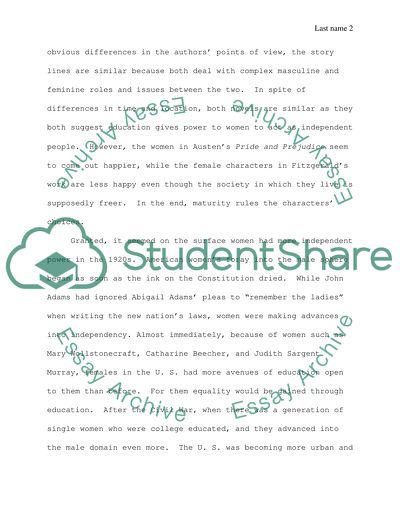Cite this document
(“Feminine Power in Pride and Prejudice and The Great Gatsby Research Paper”, n.d.)
Feminine Power in Pride and Prejudice and The Great Gatsby Research Paper. Retrieved from https://studentshare.org/literature/1438537-researched-literary-analysis
Feminine Power in Pride and Prejudice and The Great Gatsby Research Paper. Retrieved from https://studentshare.org/literature/1438537-researched-literary-analysis
(Feminine Power in Pride and Prejudice and The Great Gatsby Research Paper)
Feminine Power in Pride and Prejudice and The Great Gatsby Research Paper. https://studentshare.org/literature/1438537-researched-literary-analysis.
Feminine Power in Pride and Prejudice and The Great Gatsby Research Paper. https://studentshare.org/literature/1438537-researched-literary-analysis.
“Feminine Power in Pride and Prejudice and The Great Gatsby Research Paper”, n.d. https://studentshare.org/literature/1438537-researched-literary-analysis.


